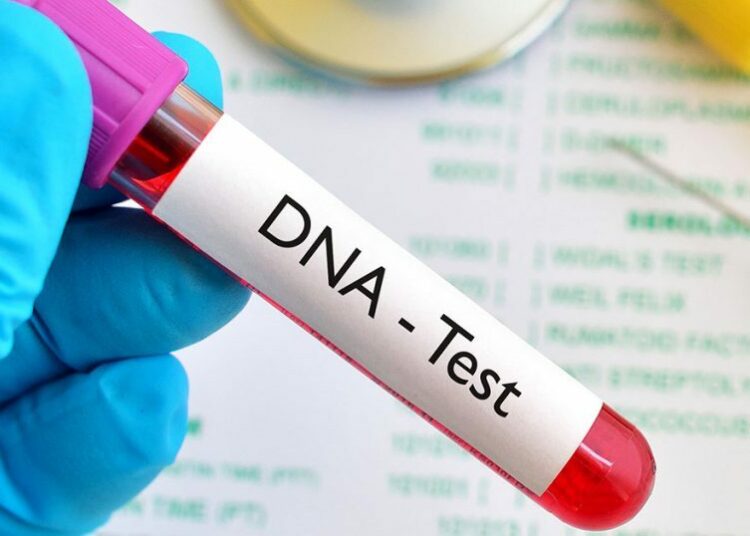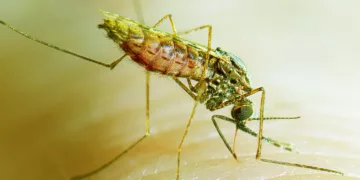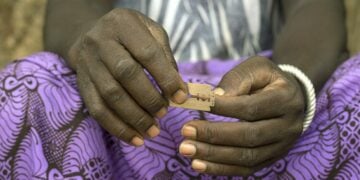In recent years, Nigeria has seen an alarming rise in cases of paternity fraud, a phenomenon where men are misled into believing they are the biological fathers of children who are not theirs.
This issue, once considered a private and somewhat rare occurrence, is now emerging as a significant social crisis with far-reaching implications for families, legal systems, and societal values.
Paternity fraud in Nigeria is becoming increasingly prevalent, with some reports suggesting that up to 27 percent of men who undergo paternity testing discover they are not the biological fathers of their children. This figure, while difficult to verify due to the sensitive nature of the issue, highlights a growing crisis that cuts across various social strata, from the poor to the affluent.
One of the most troubling aspects of paternity fraud is that it often remains undiscovered until years after the child’s birth, sometimes surfacing during medical emergencies, divorce proceedings, or when men decide to take DNA tests out of curiosity or suspicion.
Several factors contribute to the rise of paternity fraud in Nigeria. One key factor is the societal pressure on women to bear children, particularly male heirs, which can lead some to engage in deceptive practices if they face fertility challenges or fear stigmatization for being childless.
Cultural practices and gender dynamics also play significant roles. In a society where male children are often valued more highly, and where women’s economic security is sometimes tied to childbearing, the pressure to produce a male heir can be overwhelming. Some women may resort to paternity fraud to maintain their marriage or secure financial support.
Also, infidelity is another contributing factor. In cases where a woman engages in extramarital affairs, the paternity of a child might be questioned, leading to potential cases of paternity fraud if the true biological father is different from the presumed father.
The Smart DNA’s 2024 report released recently revealed that one in four men tested for DNA were not the biological fathers of their children as 27 percent of paternity tests conducted were negative.
The report, covering July 2023 to June 2024. unveiled several startling findings that shed light on societal dynamics, economic factors, and changing family structures in the country.
According to the report, 27 percent of paternity tests conducted came back negative, indicating that more than one in four men tested were not the biological fathers of the children in question. This statistic underscores the prevalence of paternity uncertainty in Nigerian society.
The report noted a significant increase in DNA tests for immigration purposes, growing more than any other test type, saying this surge aligns with the ongoing “Japa” phenomenon, as more Nigerians seek opportunities abroad. The trend suggests a growing number of parents with dual citizenship are processing paperwork for their children’s emigration.
Revealing the economic disparity, the report shows that an overwhelming 73.1 percent of all DNA tests were conducted in Lagos, with a stark divide between Mainland (67.5%) and Island (32.5%). This concentration highlights the economic divide within Lagos and across Nigeria, raising questions about access to such services in other parts of the country.
On gender imbalance in test initiation, the report revealed that men initiated a staggering 88.2 percent of all test requests, compared to just 11.8 percent by women. This significant disparity raises questions about gender roles, trust issues in relationships, and societal pressures on paternity certainty.
The report also showed the ethnic distribution as the Yoruba ethnic group accounted for 53 percent of tests, followed by Igbo 31.3 percent with Hausa at only 1.20 percent. This distribution, which doesn’t align with national ethnic demographics, should prompt discussions about cultural attitudes towards paternity testing and genetic science across different Nigerian ethnicities, the report suggested.
Most tested children were aged 0-5 (54.0%), suggesting a preference for early paternity confirmation. Men aged 41+ (45.6%) and 31-40 (37.0%) were most likely to request tests, potentially reflective of economic capabilities or increased paternity concerns in older men, the report stated while also revealing a slight gender bias in child testing: “More tests were conducted on male children (52.8%) than female children (47.2%), hinting at a possible cultural preference for confirming paternity of male offspring.”
On the reasons for the testing, the report showed that the vast majority of tests (85.9%) were conducted for ‘Peace of Mind’, highlighting the personal rather than legal motivations behind most DNA testing in Nigeria.
“These findings offer a unique window into the changing dynamics of Nigerian families and society” said the operations manager at Smart DNA, Elizabeth Digia.
“The high rate of negative paternity tests and the surge in immigration-related testing are particularly noteworthy. They reflect broader societal trends that merit further discussion and research.
“The concentration of testing in Lagos also raises important questions about accessibility and awareness of DNA testing services across Nigeria. As a company, we’re committed to expanding access to our services nationwide while maintaining the highest standards of accuracy and confidentiality, she added.
The legal implications of paternity fraud are complex and far-reaching. In Nigeria, there is no specific law addressing paternity fraud, leaving affected men with limited legal recourse. Although men who discover they are not the biological fathers of their children can seek redress in court, the outcomes are often uncertain and may not adequately address the emotional and financial toll on the victims.
A legal practitioner, Barr. Tony Obiora, said addressing paternity fraud in Nigeria requires a multifaceted approach. “First, there is a need for greater public awareness about the prevalence and consequences of paternity fraud. Educational campaigns can help dispel the stigma associated with infertility and encourage honest communication within marriages.
“Secondly, legal reforms are essential to protect the rights of men and children affected by paternity fraud. This could include the introduction of laws that provide clear guidelines for addressing paternity disputes and offering adequate remedies for victims.
“Thirdly, the availability of DNA testing should be expanded and made more affordable. DNA testing is a crucial tool in establishing paternity and can help prevent fraudulent claims. Encouraging the use of DNA testing before a man is listed as the father on birth certificates could be a preventive measure.”
He also stressed the need for social support systems that provide counseling and mediation services for families affected by paternity fraud, saying these services can help mitigate the emotional damage and support the rebuilding of trust and relationships.





